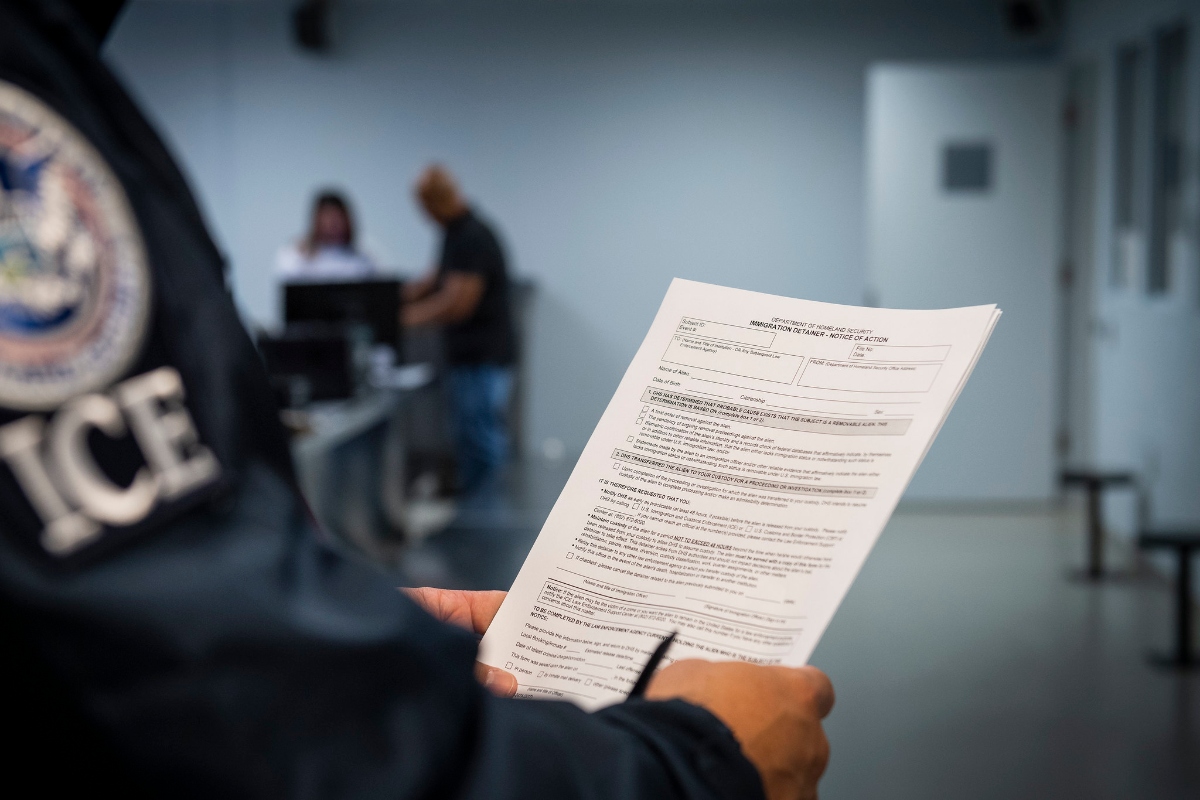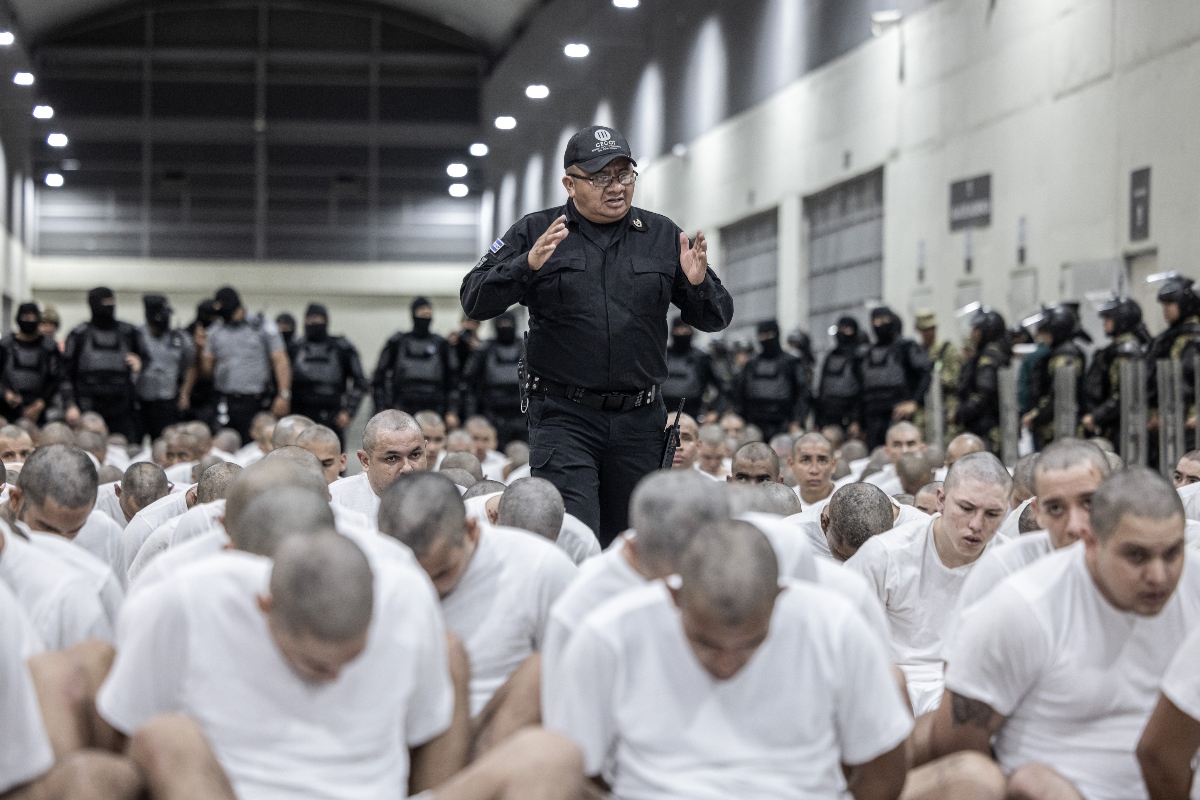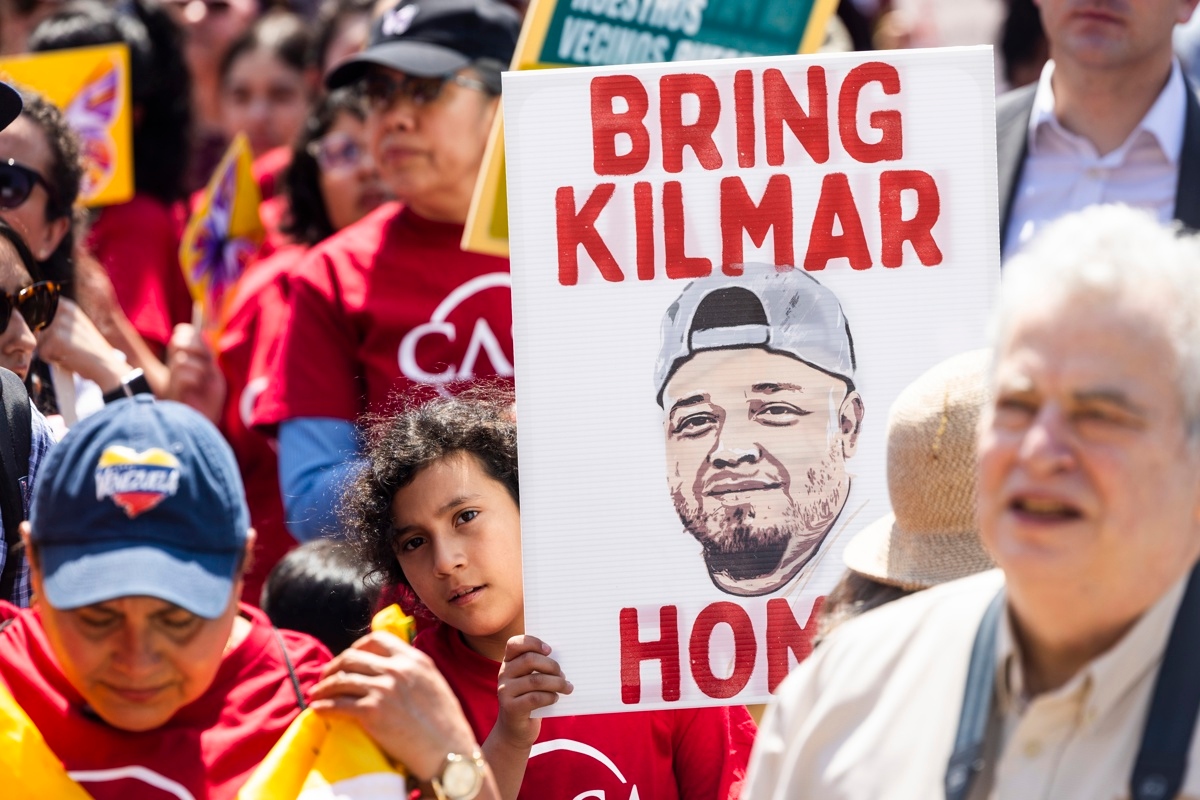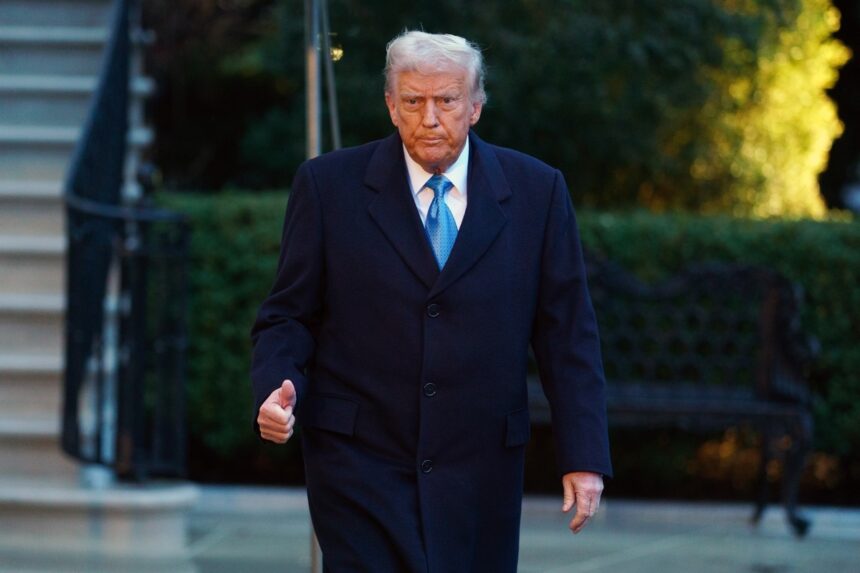In an interview with NBC’s Meet the Press broadcast Sunday, President Donald Trump defended his expedited deportation policy, downplaying the importance of due process and asserting that his priority is to get those he considers a threat to U.S. security out of the country.
From his Mar-a-Lago residence, Trump responded to criticism of constitutional violations that many immigrants are being removed without access to courts or legal representation. His response was direct: “I’m not involved in the legality or illegality of that. I have lawyers for that,” referring to his attorney general, Pam Bondi, at the helm of the Justice Department.
What about due process?

The issue arose after Secretary of State Marco Rubio said days earlier on the same program that “every person in the United States has the right to due process, even if they are undocumented”.
When questioned about that statement, Trump did not deny the principle, but argued that applying that standard universally would hinder his goal of speeding up deportations.
“We would have to do millions of trials… We can’t do it that way. I was elected to remove some of the most dangerous individuals in the world from the country,” the president said.
The policy of accelerated deportations

Since his return to the presidency in January 2025, Trump has reinstated an express deportation policy that legal experts say avoids basic immigration hearings in thousands of cases.
This policy is justified in part under the reactivation of the Alien Enemies Act of 1798, to quickly expel alleged foreign gang members, especially alleged members of the Tren de Aragua group.
In parallel, an emergency executive order on the southern border, enacted on January 21, remains in effect, allowing border agents to summarily deport undocumented people without prior judicial review. Trump insisted:
No levantaré esa emergencia. Tenemos miles que queremos sacar, y algunos jueces quieren que todos vayan a juicio. No puede ser
Donald Trump
Emblematic case: Kilmar Ábrego García

One of the cases that has generated controversy is that of Panamanian citizen Kilmar Ábrego García, deported to a maximum security prison in El Salvador, even though a U.S. court ordered his return.
His case illustrates the conflict between court orders and executive actions, which has generated criticism among jurists and human rights advocates.
Tariffs, recession and “personal austerity”.

In the same interview, Trump defended his tariff policy – which has generated tensions with trading partners and turbulence on Wall Street – saying it is a “transition to a strong economy.”
Fearing a short-term recession, he suggested that Americans adopt a more austere lifestyle:
“You don’t need to have 30 dolls. You can have three. You don’t need 250 pencils. Five is enough.”
What does this mean for the Hispanic community?
For millions of U.S. Hispanics, especially those with undocumented family members, these policies pose increased risks of detention and deportation without a hearing.
The elimination of due process poses profound legal, emotional and family challenges.
Advocates recommend having emergency immigration plans, having essential documents on hand and consulting with specialized attorneys before any interaction with ICE or CBP.
For more news, visit QuéOnnda.com.














